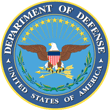 Customer: Uniformed Services University of the Health Sciences (USUHS), a military health component of the Department of Defense (DoD)
Customer: Uniformed Services University of the Health Sciences (USUHS), a military health component of the Department of Defense (DoD)
(Tekamah Corporation, prime contractor)
Goal: Provide documentation, and ongoing program operational support for online nuclear WMD first responder training courses.
Application:
The USUHS learning management system is a browser-based system capable of importing and displaying educational modules compliant with the SCORM standard. Built around a relational database, the system stores information on student and employee users, training modules, exams, and a wide variety of online resources as individual database objects that can be readily tagged and interrelated.
Individual users each get a database record defining their identity, affiliations, role in the system (e.g., student, Administrator, or registrar), and usage privileges within the system. Resources such as books, videos, e-documents, and training modules are extensively catalogued and tagged by Administrators through the user-friendly browser-based interface. Registrars may generate reports on training, membership, and Web usage as well as posting announcements to the front page of the system that all users will see. Students’ front pages display the training programs they are in, modules they have completed and need to complete, examinations, and other marks of their progress in the training thus far.
Written primarily in Java, the system can be extended by other Java developers, and interface elements can be tweaked by Administrators using the Java-based templates and configuration values accessible through the Administrator’s browser-based interface.
The basic system consists of two Java EE packages, which are the OPEP Server, which handles most of the user interface and interactions with the user, and the QuizServer, which provides the back end for online examinations. These can be sited on different machines connected only via the Internet, and more than one OPEP Server can connect to a single QuizServer so as to distribute the user load. More on this architecture can be found in section III, “Developer.”
New education modules can easily be added using any application capable of creating SCORM-compliant XML files. At present, USUHS makes use of the Course Genie plug-in for Microsoft Word that makes it easy to convert Word files produced by expert trainers into user-friendly and attractive Web-based modules. The SCORM files produced by Course Genie are then processed through the TinyLMS learning management software, which forges them into a working training module ready to be placed in the JBoss modules’ deployment directory and made available through OPEP.
Challenges:
- FTI performed full set of technical, program and corporate management responsibilities
- Work was performed on FTI’s site, delivered for multiple Tekamah and customer locations across multiple organizational functions
FTI’s Approach:
- Provide workflow analysis and process documentation consulting services
- Prepare, test, install and support WMD responder online courseware
- Document software and workflow process
Products Used: Java, J2EE, mySQL, XML, JBoss
Benefits:
- Improved Force Health Protection
- Work outsourcing to FTI allowed Tekamah to close one administrative location and eliminate all associated rent, telecommunications, mail and office service expenses
- Delivery of program performance at the highest quality level allowed Tekamah’s CEO to transition to active duty in the Army with no service impact to Tekamah’s customers
Delivery: On time, within budget.


